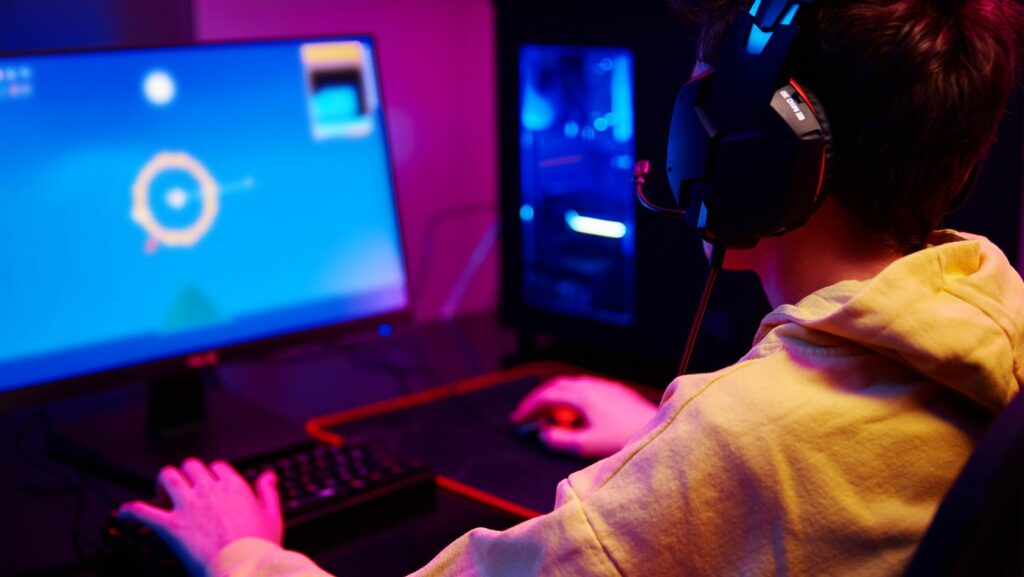Imagine a world where virtual reality isn’t just a novelty, but the norm, and eSports stars are household names. That’s the future we’re barreling toward, a future where gamers aren’t just players, but pioneers.
In this digital era, the gaming landscape is constantly evolving. New technologies are reshaping the way we play, creating immersive experiences that blur the lines between reality and fantasy. As we step into the future, gamers are set to play a pivotal role in shaping this new frontier.
So, what does the future hold for gamers? Let’s delve into this exciting world, exploring the trends, technologies, and transformations that will redefine gaming in the years to come. Stay tuned, because the game is just getting started.
Gamers in The Future
The gaming world’s metamorphosis has seen it evolve from a niche hobby to a mainstream cultural phenomenon. It’s this dynamic evolution that points to an intriguing future, especially in technology adaptations and the rise of virtual and augmented reality.
Gaming technologies mark advancement with every passing year, driving seismic shifts in the industry. In the 1970s, 8-bit graphics on Ataris and Commodore 64s ruled the roost. Then, Nintendo and Sega introduced us to the world of 16-bit graphics in the 80s and 90s, setting the groundwork for modern console gaming.
With the turn of the century, PlayStations and Xboxes presented fluid 3D environments rendered in real-time. Minecraft, for instance, capitalized on these technologies to offer an immersive sandbox experience to its players. Today, advancements such as ray tracing in graphics produce lifelike lighting and shadow effects, taking visual realism to unprecedented levels.
On the frontier of gaming advancements, Virtual Reality (VR) and Augmented Reality (AR) hold the reins. Once a science fiction staple, they’ve become key players in today’s gaming industry.

The Future Gamer Profile
Emerging technologies and evolving societal trends inform the profile of future gamers. The progression of the gaming industry, coupled with technological advancements, is set to redefine gamer behavior and demographics significantly.
Gamer behavior transformations are imminent, facilitated by advancements in Virtual Reality (VR) and Augmented Reality (AR). Unlike in the past where gaming was a solitary pursuit, the future sees a heightened emphasis on social elements. Multiplayer games, cooperative play, and connected devices are gradually becoming the norm, thereby altering gaming patterns.
Future gaming also aspires to expand its accessibility scope, targeting cross-platform compatibility. Gamers won’t limit to a single device or platform; they’ll navigate effortlessly between PCs, consoles, and mobiles, maintaining game progress and social connections.
Another notable change lies in the immersive engagement facilitated by VR and AR. Future gamers will engage more meaningfully with their environments, not mere observers but interactive participants in dynamic virtual landscapes.
Demographics of Future Gamers
The demographics of future gamers promise to be more diverse than ever before. As gaming integrates seamlessly into everyday life, its reach extends beyond the traditional young male audience. The future anticipates higher engagement from women and older audiences, undeniably influenced by the increasing popularity of mobile gaming and social elements.
Mobile gaming, offering convenience and accessibility, sees an uptick among casual gamers. These platforms cater to varied age groups and encourage a more inclusive gaming community.
Moreover, gaming as a career option stands to significantly redefine demographics in the gaming world. The rise of eSports, game developers, and streamers broadens participation from different ages, genders, and cultural backgrounds.

Impact of Artificial Intelligence on Gamers
In the ever-evolving landscape of gaming, Artificial Intelligence (AI) stands as a beacon of transformational potential. As AI becomes increasingly sophisticated, it redefines not just game development but the very experience of gamers.
Artificial Intelligence offers an innovative approach to game development. Traditionally, every action, reaction, and environment was painstakingly crafted by game designers. However, AI’s introduction disrupts this norm. Game creators now leverage AI algorithms that accomplish complex tasks, from creating realistic non-playable characters (NPCs) to shaping immersive gaming environments.
Coupled with the continually evolving VR and AR technologies, the future of gaming holds enticing prospects. Whether this pertains to a transformation in gamer behavior or a shift in demographics, the gaming industry manifests a journey filled with innovation and enhanced player engagement.


